The 120GXP’s came fairly close after the dreaded 75GXP line, although not before being preceeded by the 60GXP line. While many have better experiences with the 120GXP’s (myself included), this one hasn’t kept its side of the bargain.
One of the more uncommon experiences where the drive failed catastrophically while in use, audibly crashing in a terrible way. A head-crash on a glass-medium platter is slightly more interesting…
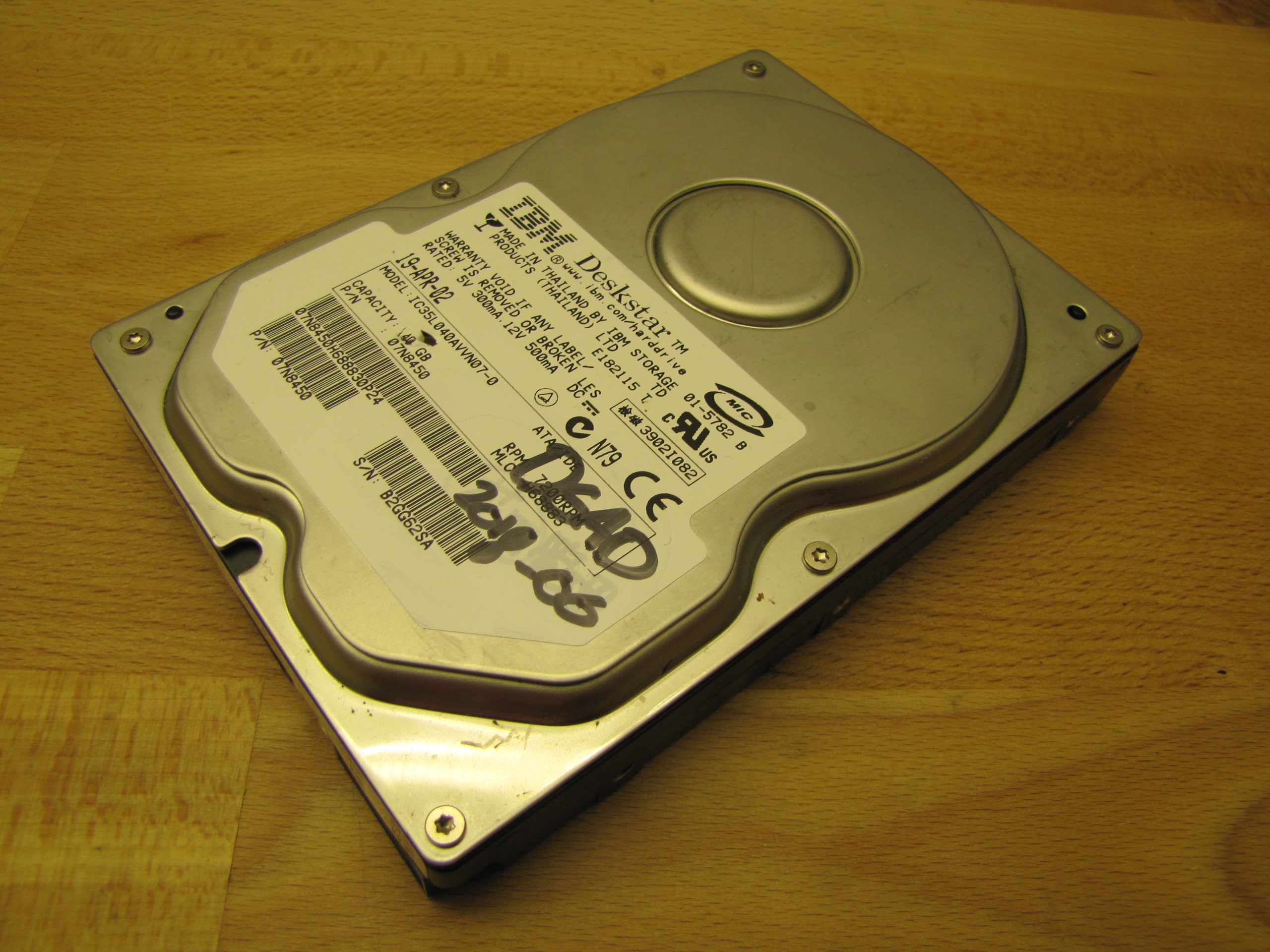
Drive Attributes ------------------------------------- IBM Deskstar 120GXP IC35L040AVVN07-0 ------------------------------------- Capacity 40GB Mfc Date 2002-04-19 Format 3.5" Interface PATA Platters 1 Heads 2 Cache 2MB RPM 7200 Origin Thailand (IBM-SP) -------------------------------------
This one only has a single platter, alongside two heads (well, this one only has one remaining, as seen below…).
There’s nothing too special concerning the design of these, it carried well into the Hitachi-era with this model remaning in production until late-2003, from both ExcelStor and Hitachi alike.
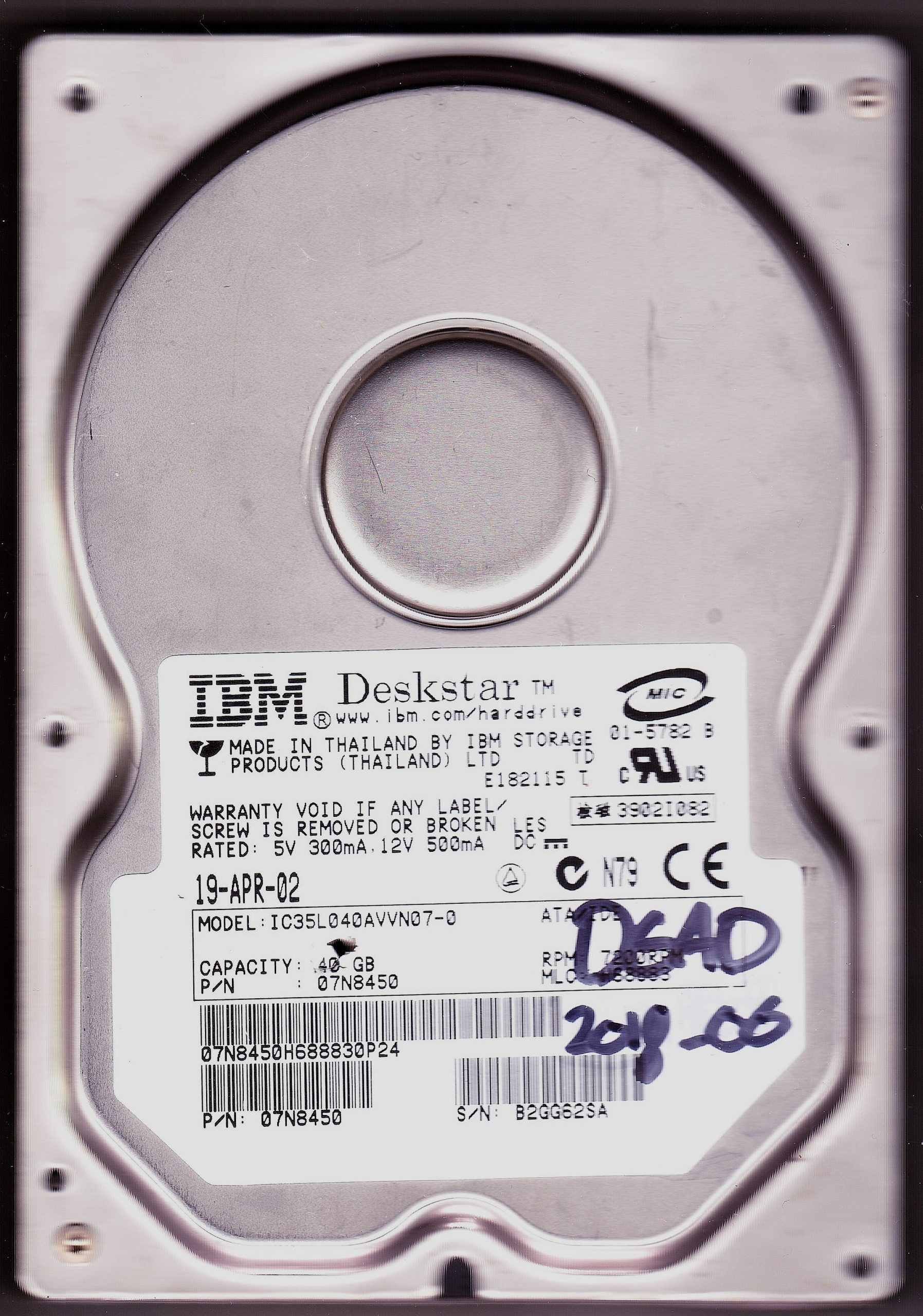
Curiously, IBM elected for a full date of manufacture on these, which carried into a few different drive models during this era. It’s something that didn’t last long, but it’s an interesting point compared to the usual Deskstar models. This one was produced in Thailand, thus being a native IBM (and in a short few months, Hitachi) factory.
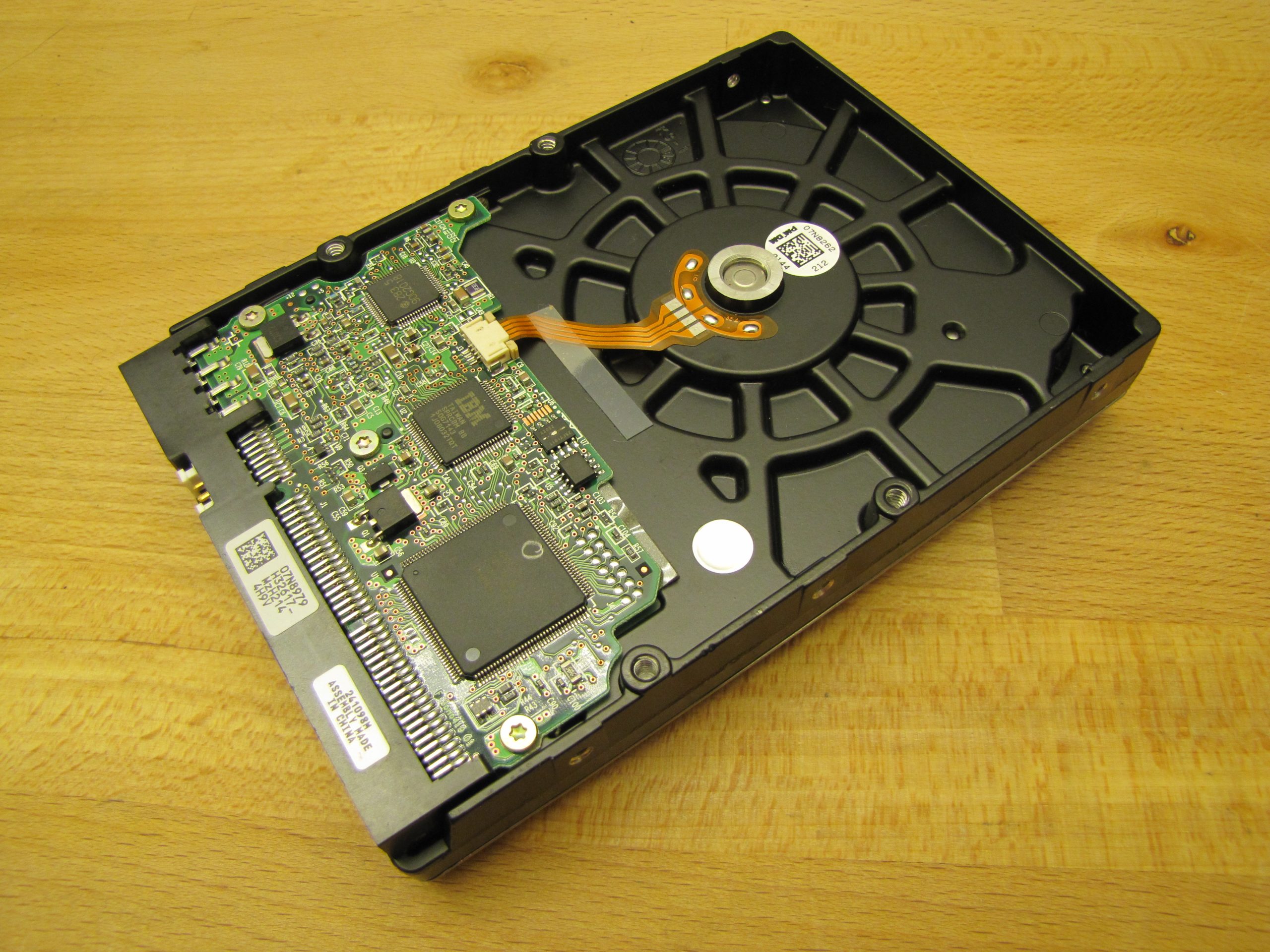
The usual backside remains obvious. The spindle motor is provided by PM DM-T, a choice IBM continued to use for lower end models for the most part.
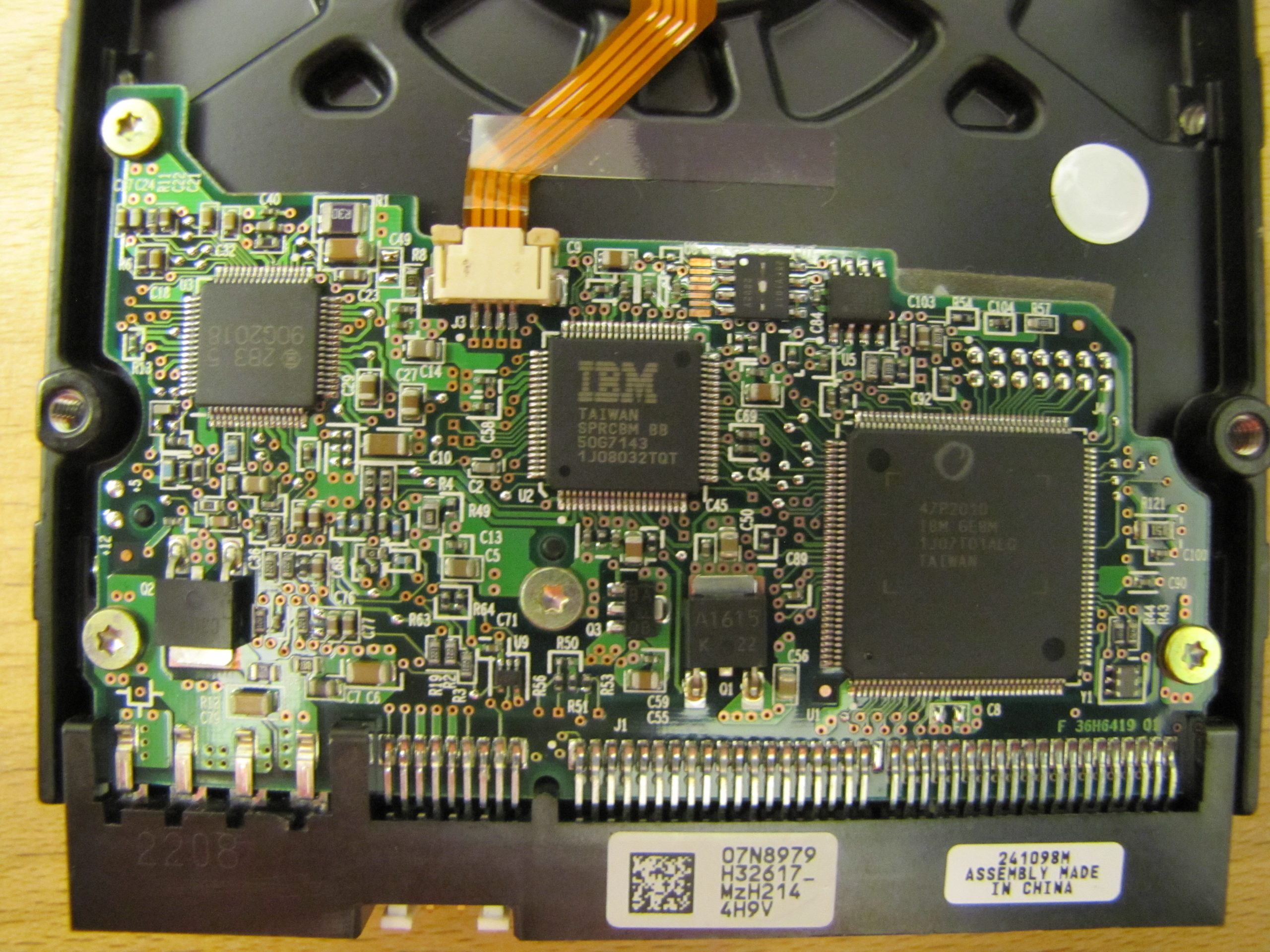
The microcontroller IC is a custom IBM chip, Hitachi again comes into play for the motor controller IC. Much the same with these specific 120GXP’s, where Mitsubishi halted being the major microcontroller vedor for IBM.
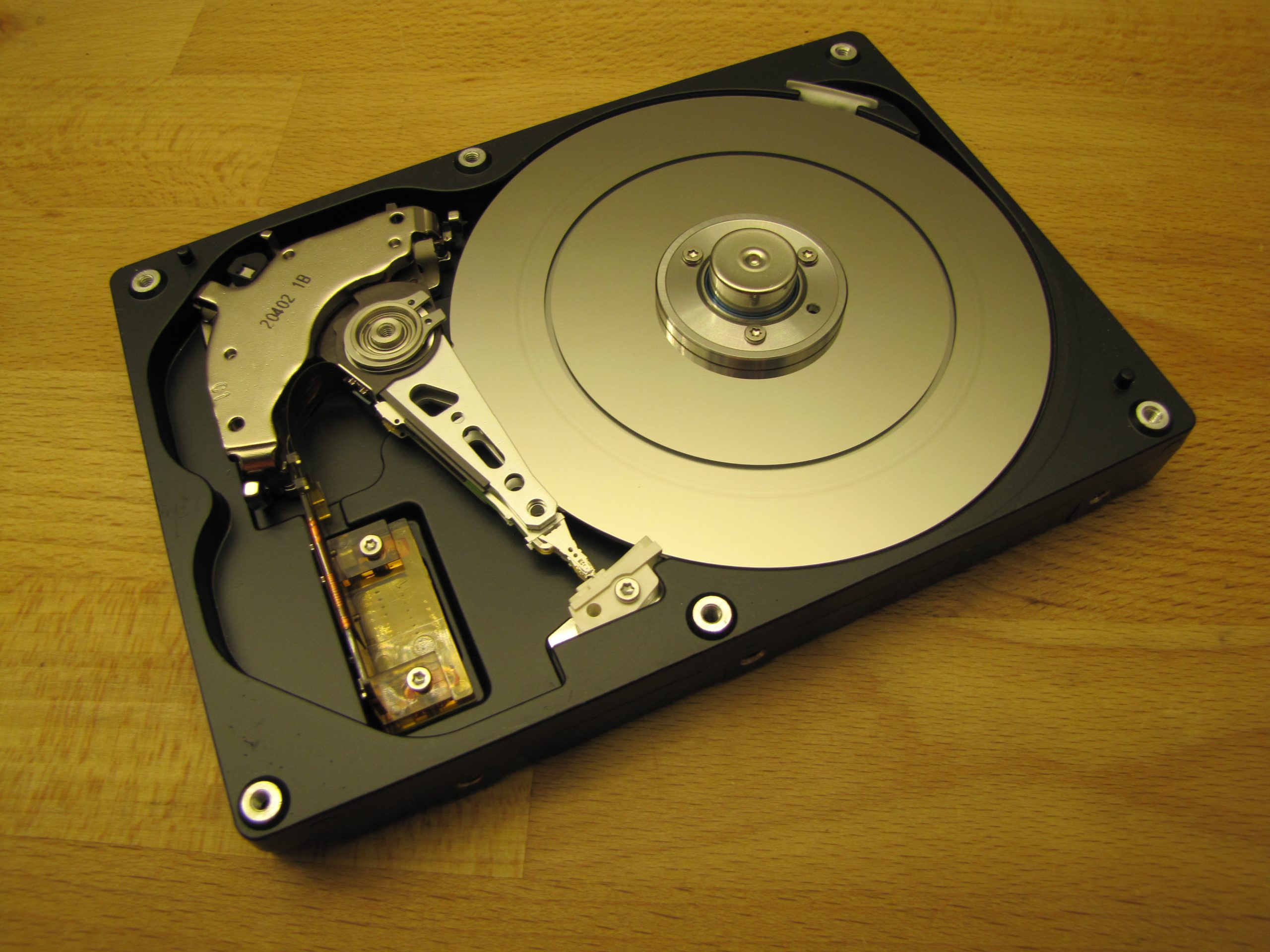
While a head-crash on a standard aluminium-medium platter creates a nice gouge, on a surface such as the one above, being a glass-medium, it takes the surface coating right off. We can see right through to the other side of the platter! (which is in perfect condition, not that it matters)
The internals of these is incredibly basic, being a cheaper design in general compared to higher-end 120GXP’s, such as with the IC35L080AVVA07-0.
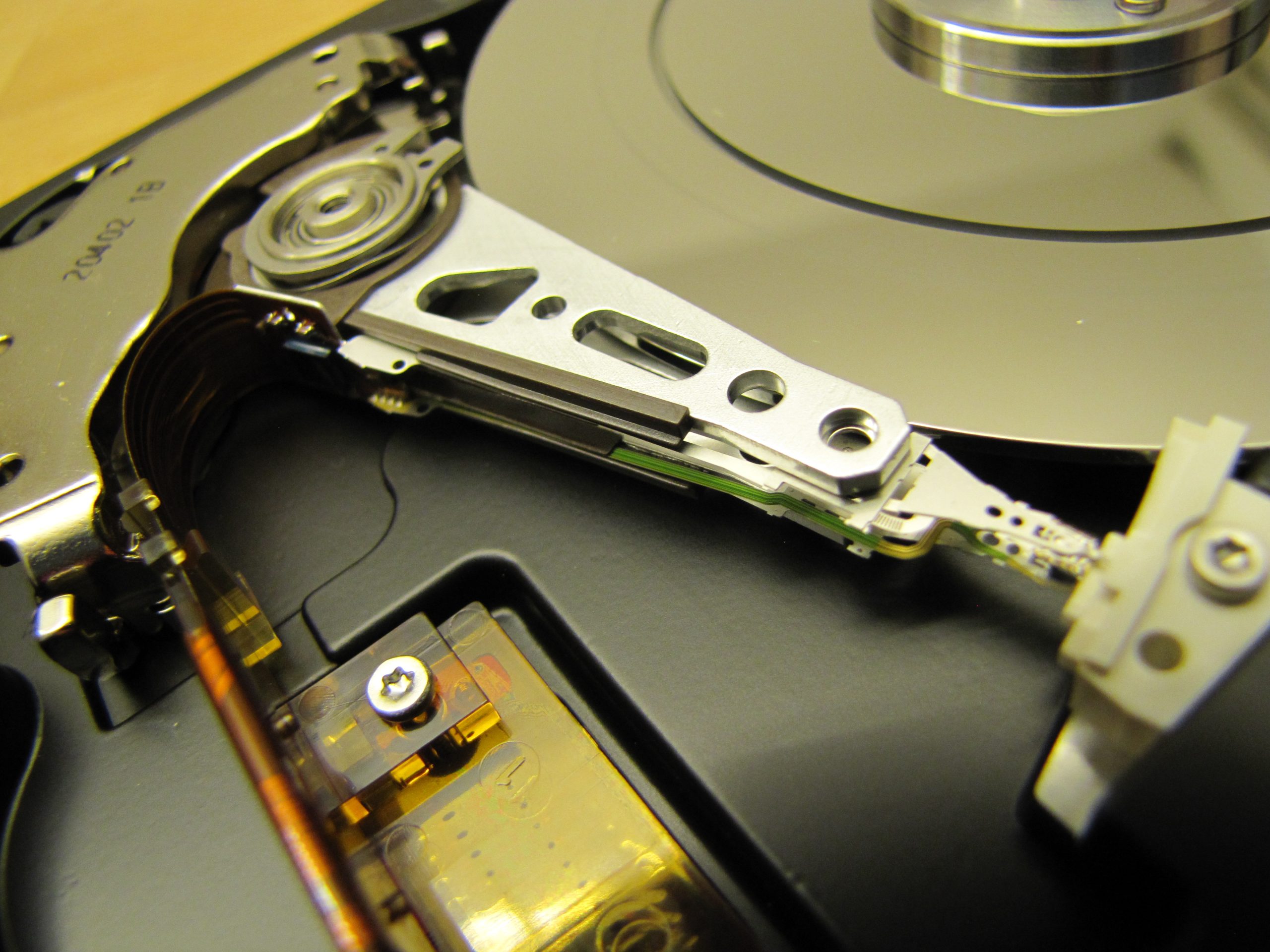
A nicely machined aluminium actuator arm. It won’t be serving much use anymore though, unfortunately. Luckily, IBM moved into ramp loading drives incredibly early on, making the mechanism as a whole quite pleasing to see in a drive this old.
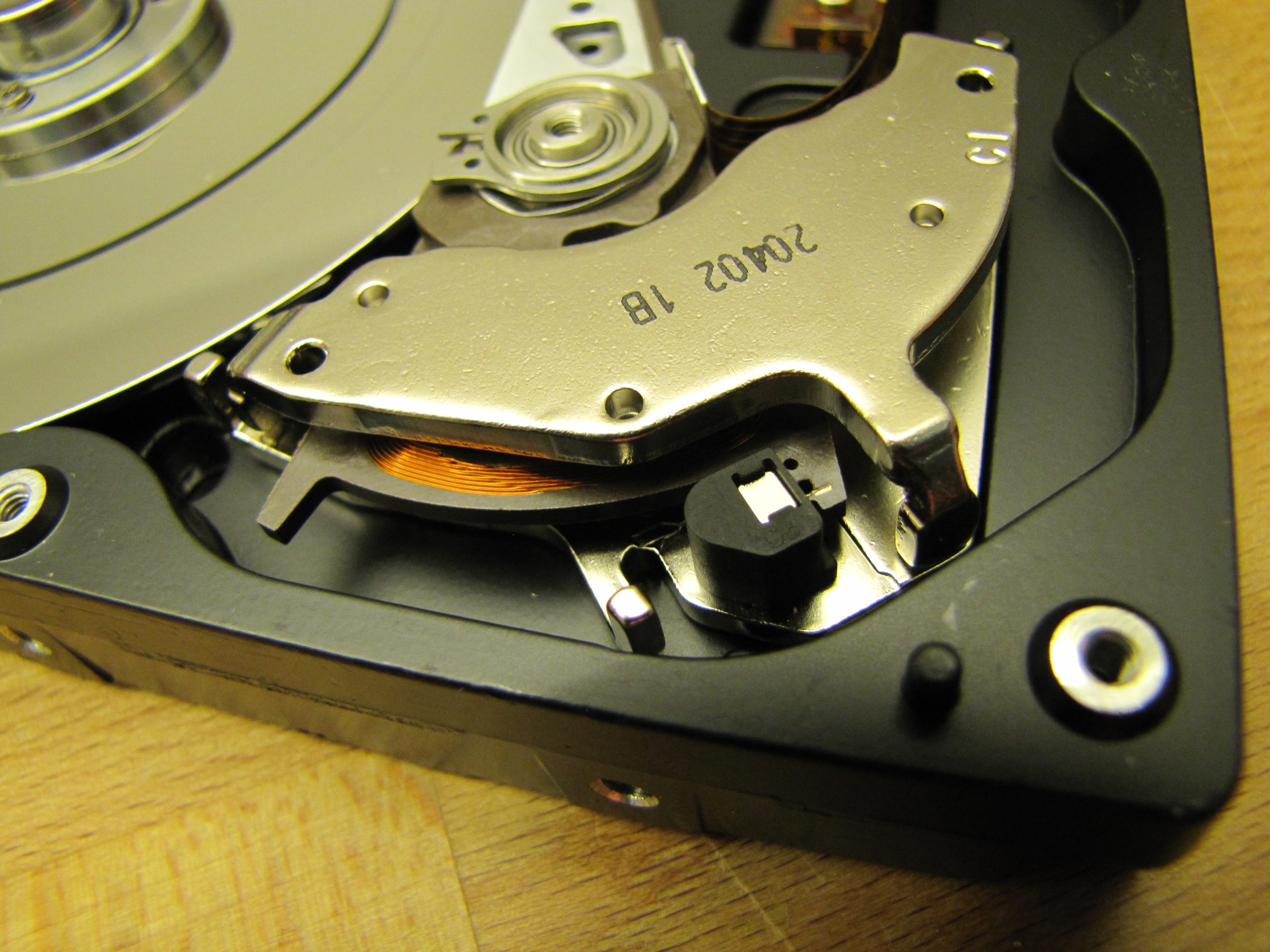
While rubber rot is beginning to plague these, this one is in perfect condition still.
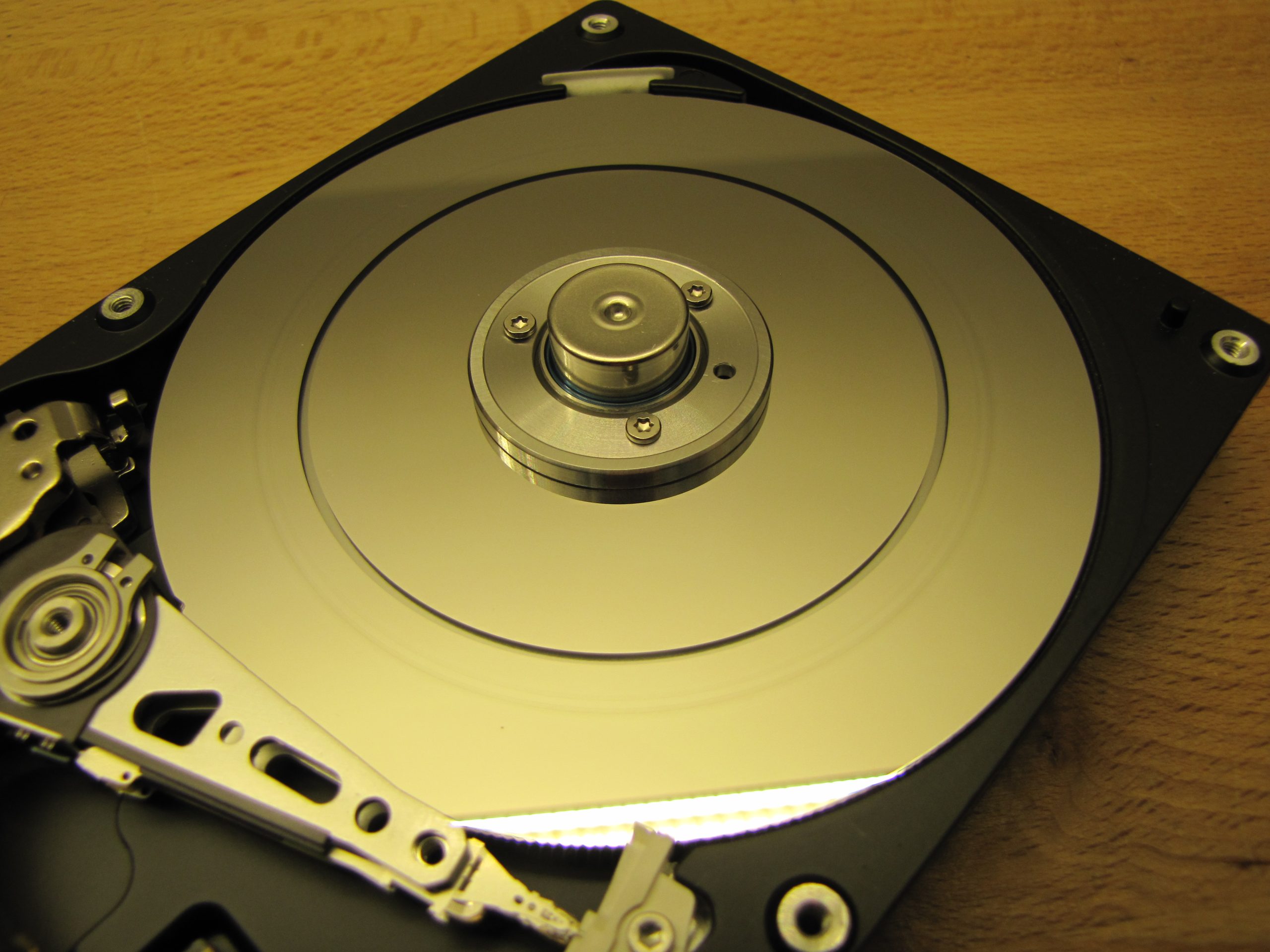
What would have been a usual Windows XP installation turned into disaster. Suffice to say, this one didn’t end up being the drive I installed.
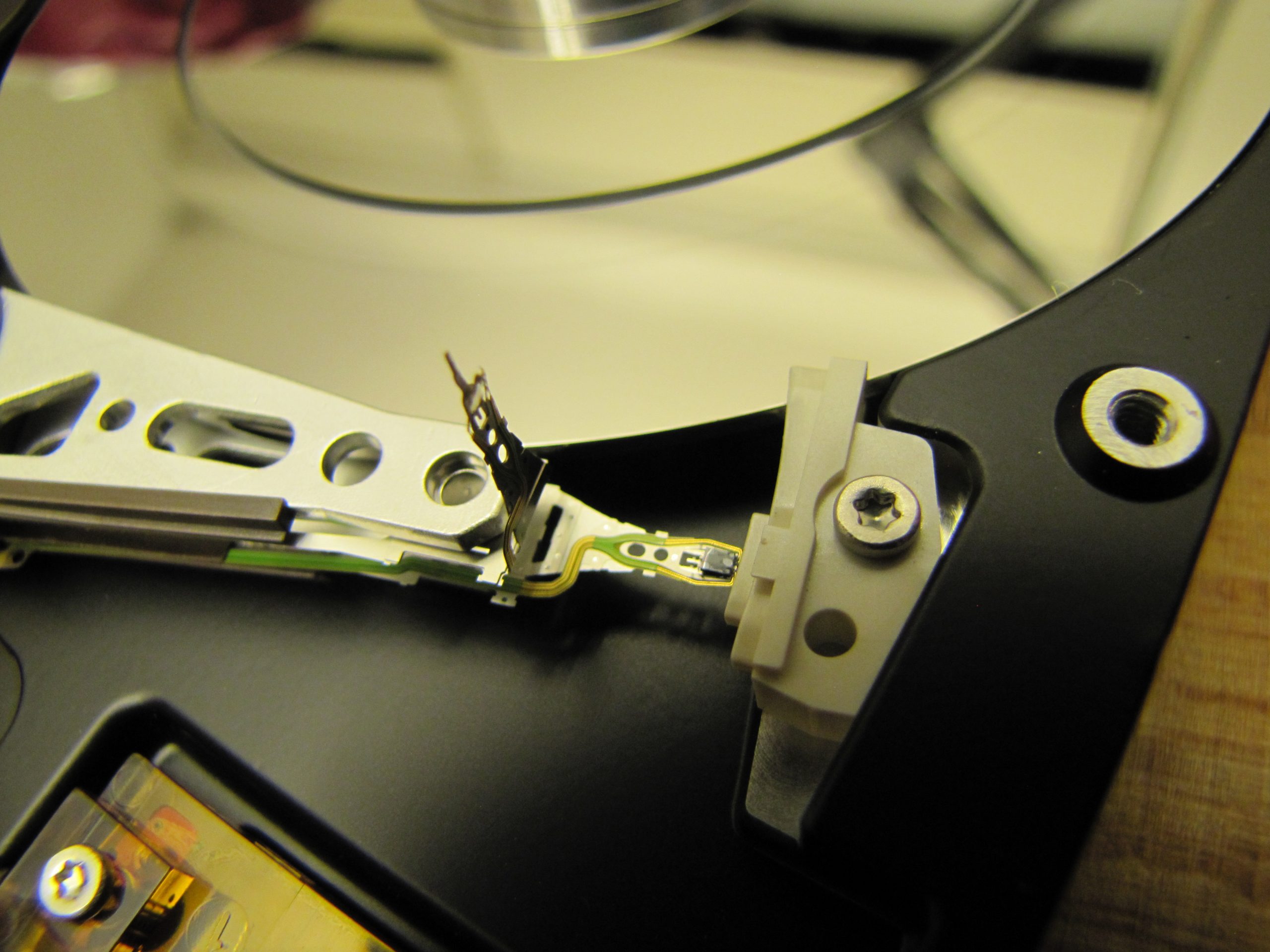
Amongst the crash, the top head flew away. The bottom one remains intact, but that’s not anything to be happy about in the end.
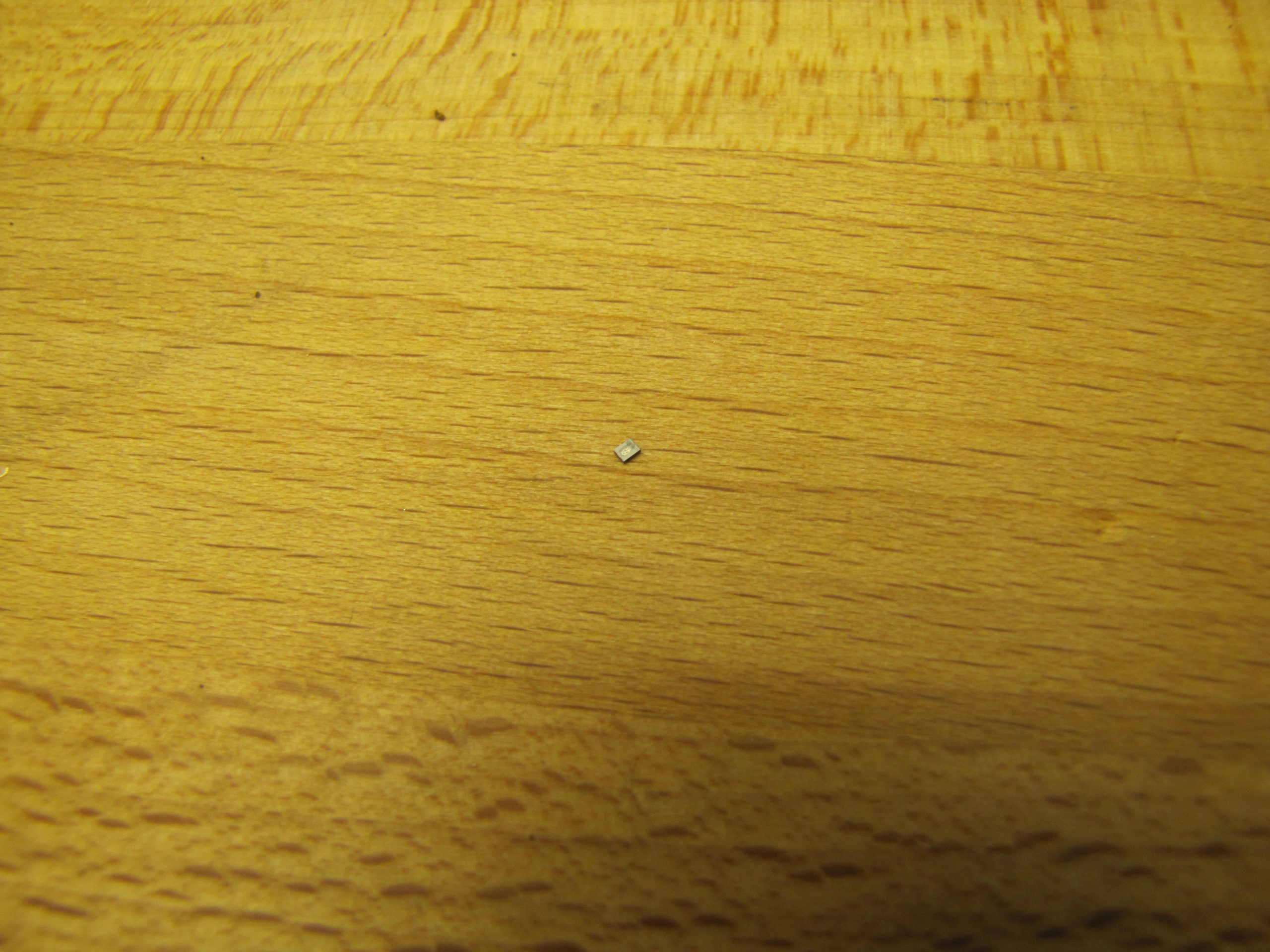
It had a grand comeback at the end. It was floating around the air filter.
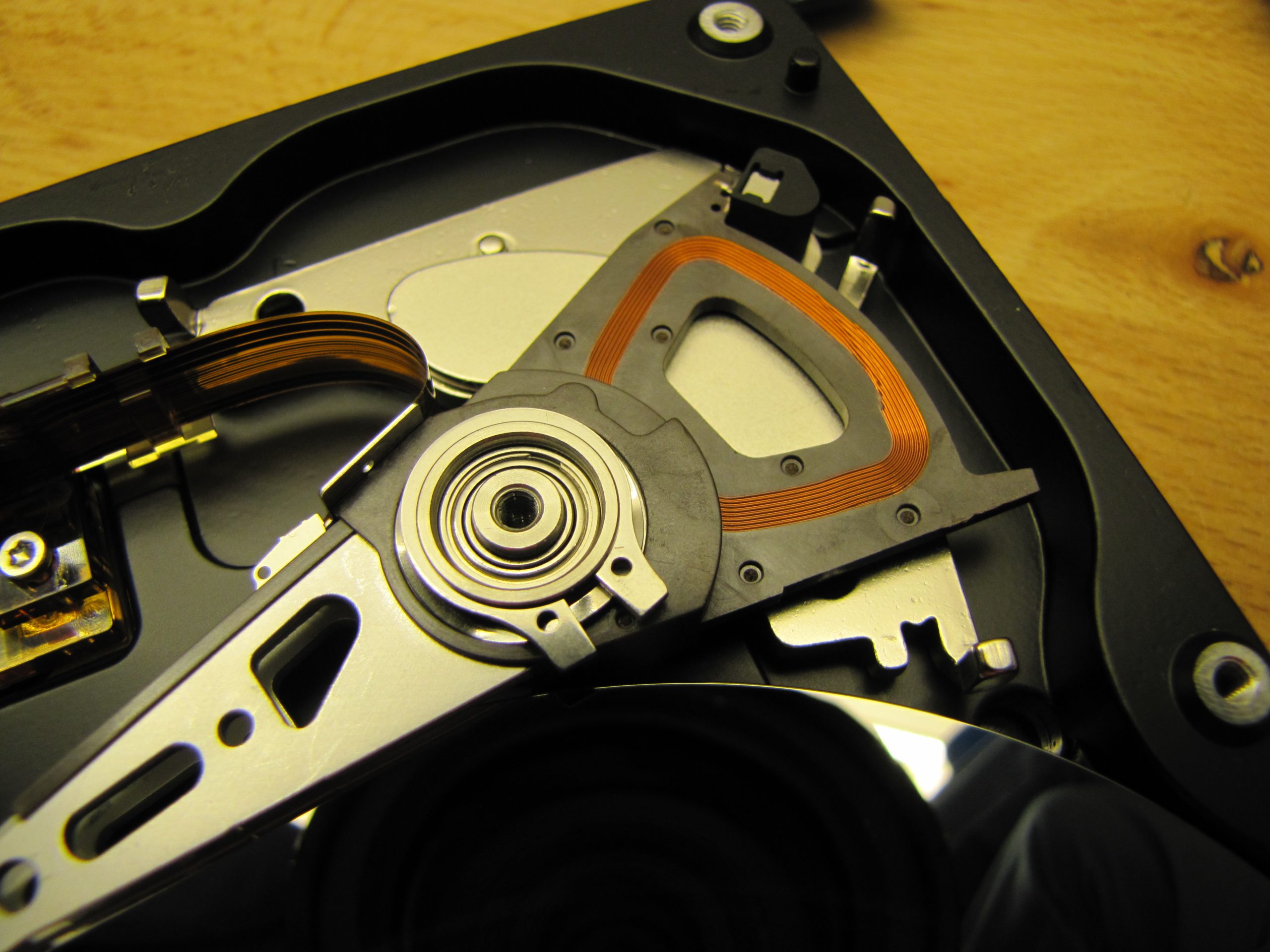
Looks neat. A nice basic assembly. While the disintegrating rubber in these is never a nice feature, at least there isn’t a bumper under the platter (thanks, Quantum).
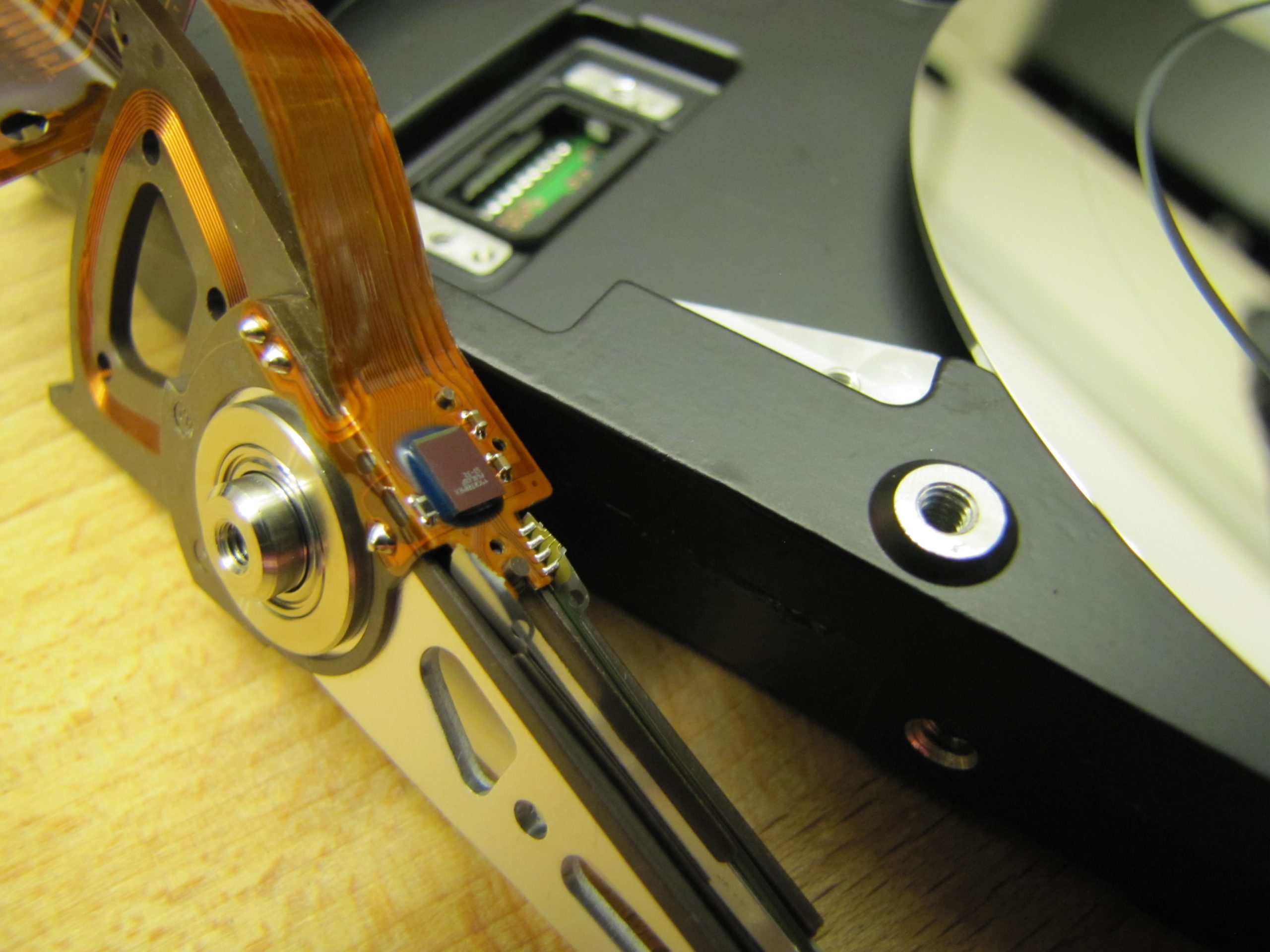
Unlike drives of yesteryear, the preamp is directly attached to the actuator arm. There are a multitude of reasons for this, IC shrinking aside, but comparatively this one is huge compared to modern drives of today.
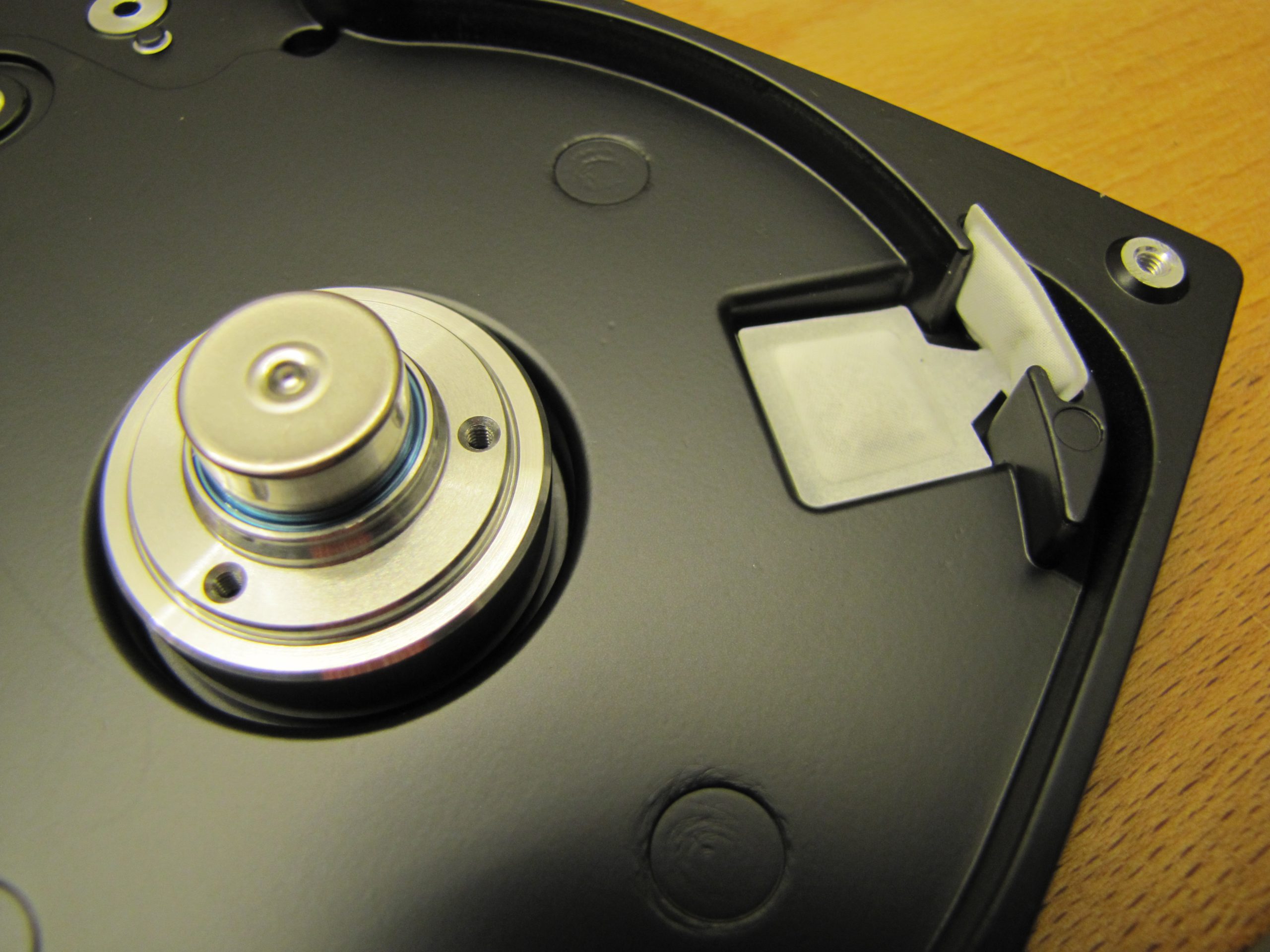
An underside air filter is always a strange sight, but one which isn’t particularly uncommon (particularly with modern Toshiba 3.5″ constructions).
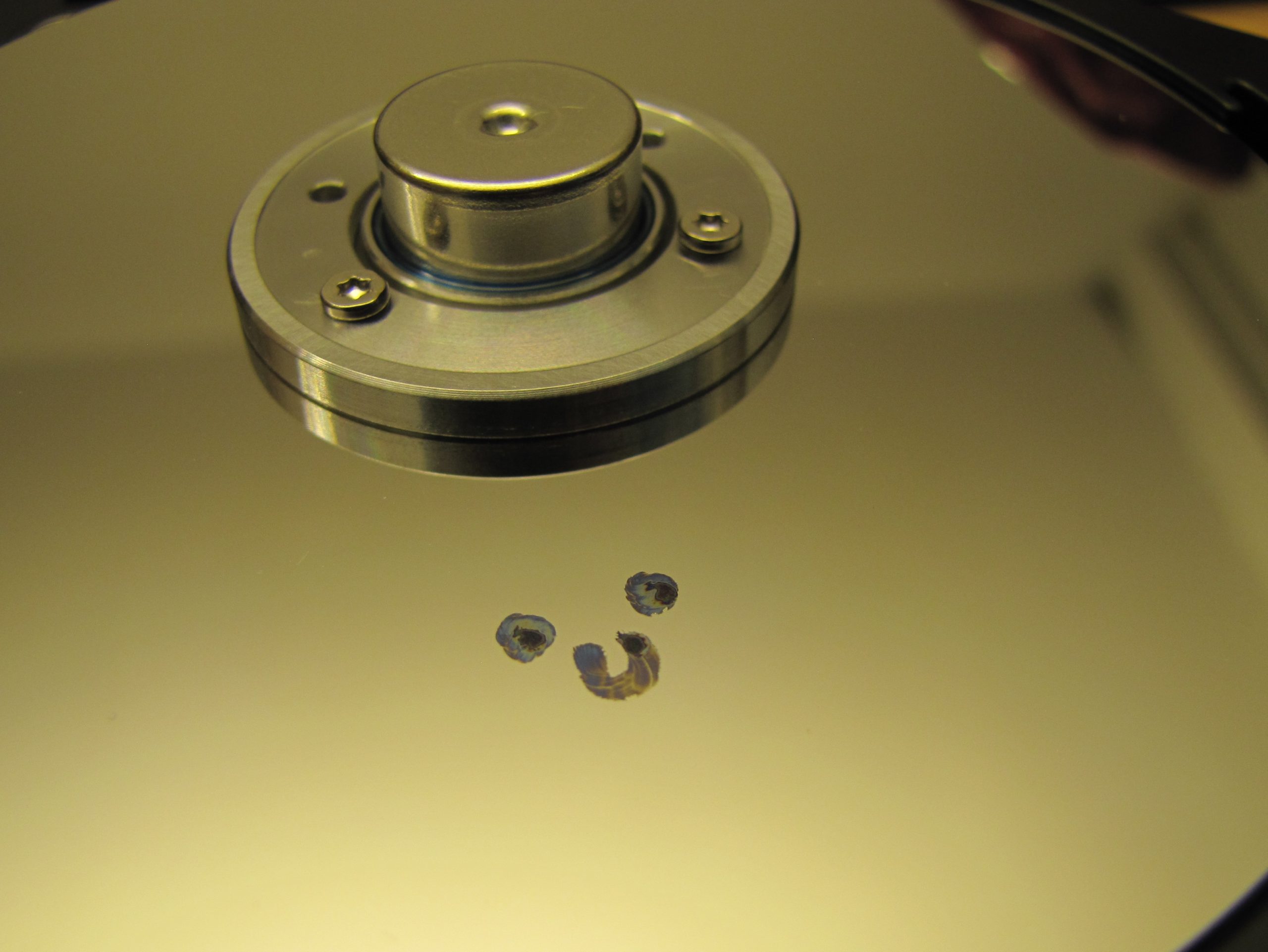
Another dead Deskstar. Although not a model with the worst track-record, it’s not like IBM were champions of reliability at the time.
Some may argue that these are as bad as the 75GXP’s, but usually I don’t think they’re too bad. It’s a shame to see this one go.
IBM Deskstar 120GXP Series Specifications Manual (pdf)
If you missed the video I made on this drive, you can find it here: